| Date | Text | |
|---|---|---|
30 Nov 1997

reflecting telescopes |
reflecting telescopes (astronomy and space ) The first of four 8.4 m reflecting telescopes opens in the Very Large Telescope program of the European Southern Observatory at Cerro Paranal in Chile. |
|
30 Nov 1997

nuclear magnetic resonance |
nuclear magnetic resonance (computer science) The first working 2-qubit nuclear magnetic resonance computer is demonstrated at the University of California, Berkeley. |
|
30 Nov 1997
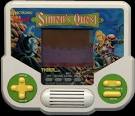
Tiger Electronics |
Tiger Electronics (computer science) Tiger Electronics launch the Furby electronic toy, the first domestic robot. |
|
30 Nov 1997

Luca Cardelli |
Luca Cardelli (mathematics) Luca Cardelli and Andrew D. Gordon develop ambient calculus. |
|
30 Nov 1997

Thomas Callister Hales |
Thomas Callister Hales (mathematics) Thomas Callister Hales (almost certainly) proves the Kepler conjecture. |
|
30 Nov 1997
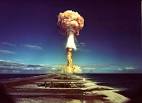
Nuclear testing |
Nuclear testing (physics) Nuclear testing: The Pokhran-II: India detonates the five nuclear devices in Pokhran Test Range, an Indian Army base. |
|
30 Nov 1997
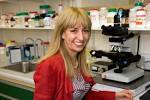
Susan Greenfield |
Susan Greenfield (appointments) Susan Greenfield appointed Director of the Royal Institution of Great Britain. |
|
30 Nov 1997
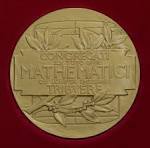
Fields Prize in Mathematics |
Fields Prize in Mathematics (awards) Fields Prize in Mathematics: Richard Ewen Borcherds, William Timothy Gowers, Maxim Kontsevich and Curtis T. McMullen |
|
30 Nov 1997

Turing Award |
Turing Award (awards) Turing Award: Jim Gray |
|
30 Nov 1997
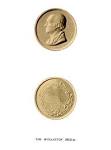
Wollaston Medal for Geology |
Wollaston Medal for Geology (awards) Wollaston Medal for Geology: Karl Karekin Turekian |
|
30 Nov 1997

Darian Maxfield |
birth Darian Maxfield January 31 - Darian Maxfield |
|
01 Jan 1998

Cosmologists |
Cosmologists (astronomy and space ) September – Cosmologists from the Supernova Cosmology Project led by Saul Perlmutter and the High-z Supernova Search Team led by Adam Riess and Brian Schmidt publish evidence that the expansion rate of the universe is increasing. |
|
06 Jan 1998
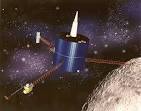
Lunar Prospector |
Lunar Prospector (astronomy and space ) The Lunar Prospector spacecraft is launched into orbit around the Moon and later finds evidence for frozen water on the moon's surface. |
|
14 Jan 1998

Dallas |
Dallas (physiology and medic) Researchers in Dallas, Texas, present findings about an enzyme that slows aging and cell death (apoptosis). |
|
02 Feb 1998
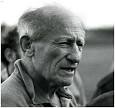
Haroun Tazieff |
death Haroun Tazieff Died 2 Feb 1998 at age 83 (born 11 May 1914). Polish-born French volcanologist whose fascination with volcanoes and knowledge of them, often obtained under extremely harrowing conditions, were enthusiastically shared by the French public through books and, especially, in films on television; he was considered one of the six most popular personalities in France... |
|
02 Feb 1998

Raymond Cattell |
death Raymond Cattell Died 2 Feb 1998 at age 92 (born 20 Mar 1905). Raymond Bernard Cattell was an English-American psychologist who conducted research on individual differences in cognitive abilities, personality, and motivation. For his BSc degree, he studied physics and chemistry, but turned to physholocy for his PhD. Influenced by his undergraduate training in science, he applied mathematical techniques to the study of psychology, making the discipline more objective and quantitative. Cattell became one of the world's leading personality theorists, and developed many widely used psychological tests, of which the best known is the 16 Personality Factor (16PF) personality assessment. During his life, he wrote 55 books and over 500 research papers. |
|
04 Feb 1998
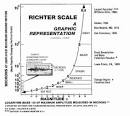
Richter Scale |
Richter Scale (geology) An earthquake measuring 6.1 on the Richter Scale in northeast Afghanistan kills more than 5,000. |
|
10 Feb 1998
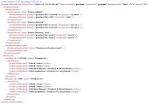
XML |
XML (computer science) XML is published as a recommendation of the W3C. |
|
19 Feb 1998
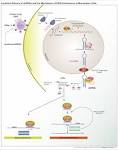
RNA interference |
RNA interference (physiology and medic) RNA interference first elucidated in the nematode Caenorhabditis elegans. |
|
26 Feb 1998

Total solar eclipse |
Total solar eclipse (astronomy and space ) Total solar eclipse |
|
27 Feb 1998

George Herbert Hitchings |
death George Herbert Hitchings Died 27 Feb 1998 at age 92 (born 18 Apr 1905). American pharmacologist was a medical research pioneer who was awarded a share of the Nobel Prize for Physiology or Medicine in 1988 (with Gertrude B. Elion and Sir James W. Black) for development of drugs for several major diseases. In the 1950s, he and colleague Elion developed thioguanine and 6-mercaptopurine, that treated leukemia, and in 1957, azathioprine, used in treating severe rheumatoid arthritis and other autoimmune disorders. Their drug allopurinol was effective treatment for gout. Other important drugs they developed include pyrimethamine, an antimalarial agent; trimethoprim, a treatment for urinary and respiratory tract infections; and acyclovir, the first effective treatment for viral herpes. |
|
28 Feb 1998

Andrew Wakefield |
Andrew Wakefield (physiology and medic) Andrew Wakefield publishes a case series (subsequently partially retracted) in The Lancet of twelve children with gastroenterological and autistic spectrum disorders believed to have first presented soon after receipt of the MMR vaccine. |
|
02 Mar 1998
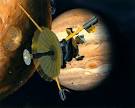
Galileo space probe |
Galileo space probe (astronomy and space ) Data sent from the Galileo space probe indicates that Jupiter's moon Europa has a liquid ocean under a thick crust of ice. |
|
05 Mar 1998
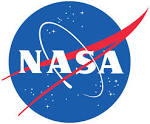
NASA |
NASA (astronomy and space ) NASA announces that the Clementine probe orbiting the Moon has found enough water in polar craters to support a human colony and rocket-fuelling station. |
|
13 Mar 1998
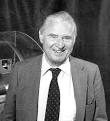
Hans Joachim Pabst von Ohain |
death Hans Joachim Pabst von Ohain Died 13 Mar 1998 at age 86 (born 14 Dec 1911). German aeronautical engineer who designed the first operational jet engine. Ohain, at age 22, conceived his theory of jet propulsion (1933) because to fly faster, airplanes could fly higher for lower air resistance, but there, propellers and piston engines worked badly. He saw turbojets as a solution, and took out his first patent on the gas-turbine jet engine in 1935, four years after Frank Whittle. By Sep 1937, Ohain had a hydrogen-fueled bench model producing a 250-km thrust. He designed the HeS3b turbojet engine that powered the first experimental jet aircraft, the He178, on its historic maiden flight at a top speed of about 350 mph on 27 Aug 1939, near Rostock, Germany. Whittle's first jet flew later, in 1941. His continued work on the gas-turbine engine during World War II resulted in abandonment of the centrifugal flow concept, and adoption of the axial flow compressor type engine. After WW II, Ohain worked for the U.S. airforce (1947-79). In 1945, he emigrated to the U.S. and became an engineer for the U.S. Air Force at its engine development centre. In 1956, Von Ohain became Director of the famed Air Force Aeronautical Research Laboratory. |
|
13 Mar 1998

Penumbral lunar eclipse |
Penumbral lunar eclipse (astronomy and space ) Penumbral lunar eclipse |
|
15 Mar 1998

Benjamin Spock |
death Benjamin Spock Benjamin Spock (b. 1903), pediatrician, writer. |
|
16 Mar 1998

Derek Barton |
death Derek Barton Derek Barton (b. 1918), chemist, Nobel laureate. |
|
05 Apr 1998
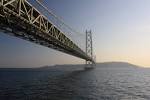
Akashi-Kaikyo Bridge |
Akashi-Kaikyo Bridge (technology) In Japan, the Akashi-Kaikyo Bridge linking Shikoku with Honshū, at a cost of about US$3.8 billion, opens to traffic, becoming the longest-span suspension bridge in the world. |
|
01 May 1998

robotically assisted |
robotically assisted (physiology and medic) Dr. Friedrich-Wilhelm Mohr performs the first robotically assisted coronary artery bypass surgery, at the Leipzig Heart Centre in Germany using the da Vinci Surgical System; later in the year, Dr. Ralph Damiano performs on 17 patients in Pennsylvania. |
|
28 May 1998

Chagai-I |
Chagai-I (physics) Nuclear testing: The Chagai-I: In response to India, Pakistan conducts five underground and simultaneous nuclear weapon-testing experiments in the Chagai Hills, thus becoming the first nuclear weapon state in the Muslim world and the seventh in the world. |
|
30 May 1998
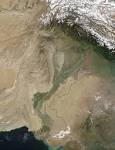
Chagai-II |
Chagai-II (physics) Nuclear testing: The Chagai-II: As part of a tit-for-tat policy, a final plutonium implosion test is carried out in the Kharan Desert. |
|
31 May 1998

Michio Suzuki |
death Michio Suzuki Michio Suzuki (b. 1926), mathematician. |
|
02 Jun 1998

CIH virus |
CIH virus (computer science) The CIH virus is discovered in Taiwan. |
|
05 Jun 1998

neutrinos |
neutrinos (physics) Experimental proof is obtained that neutrinos have mass. |
|
25 Jun 1998

SOHO accident |
SOHO accident In 1998, contact was lost with the Solar and Heliospheric Observatory (SOHO). It was positioned in a "halo" orbit around L-1, a gravitational balance point between Earth and the Sun about 1.5 million km (930,000 mi) away from Earth. Fortunately, a major blow to the field of Solar studied was avoided. Contact was reestablished 16 Sep 1998, and by mid-October scientists were reactivating the science instruments. Since its launch on 2 Dec 1995, SOHO gave solar science a new ability to observe simultaneously the interior and atmosphere of the Sun, and particles in the solar wind and the heliosphere. Observation of eruptions of hot, electrically charged gas, provided early warning of interactions that could affect the Earth. |
|
03 Jul 1998

Danielle Bunten Berry |
death Danielle Bunten Berry Danielle Bunten Berry (b. 1949), also known as Dan Bunten, software developer. |
|
05 Jul 1998
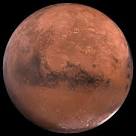
Mars |
Mars (astronomy and space ) Japan launches a probe to Mars, and thus joins the United States and Russia as a space-exploring nation. |
|
14 Jul 1998

Miroslav Holub |
death Miroslav Holub Miroslav Holub (b. 1923), immunologist and poet. |
|
17 Jul 1998

tsunami |
tsunami (geology) A tsunami triggered by an undersea earthquake destroys 10 villages in Papua New Guinea killing an estimated 1,500, leaving 2,000 more unaccounted for and thousands more homeless. |
|
17 Jul 1998

Biologists |
Biologists (physiology and medic) Biologists report in the journal Science how they sequenced the genome of the bacterium that causes syphilis, Treponema pallidum. |
|
21 Jul 1998
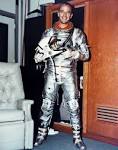
Alan Shepard |
death Alan Shepard Alan Shepard (b. 1923), astronaut. |
|
04 Aug 1998
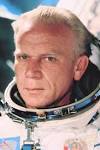
Yuri Artyukhin |
death Yuri Artyukhin Yuri Artyukhin (b. 1930), cosmonaut. |
|
10 Aug 1998

Sidney W. Fox |
death Sidney W. Fox Died 10 Aug 1998 at age 86 (born 24 Mar 1912). Sidney Walter Fox was an American biochemist who was interested in the biological origin of life, rather than tracing a strictly biochemical path. He gave the name proteinoid to the protein-like polymer that results from a mixture of amino acids subjected to such considerable heating as would be present during the volcanic primordial earth. Fox observed that when proteinoids or "thermal proteins," are placed in water, they self-organize into microspheres or protocells, possible precursors of the contemporary living cell. Fox argued that RNA or DNA need not date back to the origin of life, and he showed that proteinoid microspheres exhibit growth, metabolism, reproduction (by budding), and responsiveness to stimuli - all properties of life - though without a genetic system. |
|
22 Aug 1998
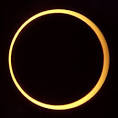
Annular solar eclipse |
Annular solar eclipse (astronomy and space ) Annular solar eclipse |
|
26 Aug 1998

Frederick Reines |
death Frederick Reines Frederick Reines (b. 1918), physicist, Nobel laureate. |
|
23 Sep 1998
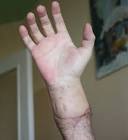
hand transplantation |
hand transplantation (physiology and medic) The world's first medically successful hand transplantation is carried out by a team of surgeons in France. |
|
10 Oct 1998

Konstantin Petrzhak |
death Konstantin Petrzhak Konstantin Petrzhak (b. 1907), physicist. |
|
28 Oct 1998

Tommy Flowers |
death Tommy Flowers Tommy Flowers (b. 1905), computer engineer. |
|
29 Oct 1998

Glenn returns to space |
Glenn returns to space In 1998, U.S. astronaut John Glenn was launched into space aboard Space Shuttle Discovery. In 1962, Glenn first made history as the first American to orbit the Earth, strapped into a nine-by-seven-foot capsule. Now at age 77, and a U.S. Senator from Ohio, Glenn was a member of the STS-95 crew, serving as a Payload Specialist, aboard the Discovery. He carried out studies on the commonalities between the effects of space flight and aging. His microgravity research results relate to product-oriented commercial applications in such diverse fields as medical, agriculture and manufacturing. The 9-day mission returned on 7 Nov 1998, after 134 Earth orbits, traveling 3.6 million miles in 213-hr 44-min. His original flight had lasted about 5 hours. |
|
29 Oct 1998
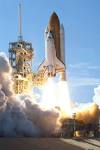
Space Shuttle Discovery |
Space Shuttle Discovery (astronomy and space ) Space Shuttle Discovery blasts-off with 77-year old John Glenn on board, making him the oldest person to go into space. He became the first American to orbit Earth on February 20, 1962. |
|
07 Nov 1998
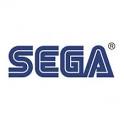
Sega |
Sega (computer science) Sega release the Dreamcast, the first sixth generation home video game console, in Japan. |
|
13 Nov 1998

1,000th pulsar |
1,000th pulsar In 1998, the discovery of the 1,000th pulsar in our galaxy was announced in a press release by the Jodrell Bank Observatory, University of Manchester, using the 64-meter Parkes Radio Telescope in New South Wales, Australia. A “multibeam” receiver was installed on the telescope in early 1997. This allowed the astronomers from England, Australia, United States, and Italy to find pulsars much faster than before. On average, they found a new pulsar in every hour of observing. By this date, the researchers had found more than 200 pulsars and they expected to find another 600 more before the survey ended. The “multibeam” receiver used consists of 13 hexagonally arranged receivers that allow simultaneous observations. |
|
13 Nov 1998

Helen Herrick Malsed |
death Helen Herrick Malsed Died 13 Nov 1998 (born 1910). American toy inventor who created a number of games and toys, most notably toys based on the already popular Slinky, such as the Slinky Dog and the Slinky Train. |
|
19 Nov 1998

Ted Fujita |
death Ted Fujita Died 19 Nov 1998 at age 78 (born 23 Oct 1920). Tetsuya Theodore Fujita was a Japanese-American meteorologist who increased the knowledge of severe storms. In 1953, he began research in the U.S. Shortly afterwards, he immigrated and established the Severe Local Storms Project. He was known as "Mr. Tornado" as a result of the Fujita scale (F-scale, Feb 1971), which he and his wife, Sumiko, developed for measuring tornadoes on the basis of their damage. Following the crash of Eastern flight 66 on 24 Jun 1975, he reviewed weather-related aircraft disasters and verified the downburst and the microburst (small downburst) phenomena, enabling airplane pilots to be trained on how to react to them. Late in his career, he turned to the study of storm tracks and El Nino. |
|
20 Nov 1998

International Space Station |
International Space Station In 1998, the first module of the International Space Station was launched on a Russian Proton rocket from Baikonur Cosmodrome, Kazakhstan. This $240 million Zarya functional cargo block was followed two weeks later by the Unity connecting module from the U.S. After 16 years of planning and design, the orbiting station was taking shape, the beginning of what some called "a city in space." The project, initiated by NASA in 1983, also involved Canada, Japan and the 11 members of the European Space Agency. After the Cold War, the Russians had been invited to participate, not merely as an exercise in international cooperation, but also to employ Russian scientists who might have otherwise sold their expertise to renegade countries. |
|
20 Nov 1998
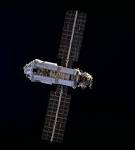
Zarya |
Zarya (astronomy and space ) Zarya, the first module of the International Space Station, is launched. |
|
05 Dec 1998

Hazel Bishop |
death Hazel Bishop Died 5 Dec 1998 at age 92 (born 17 Aug 1906). Hazel Gladys Bishop was an American chemist and cosmetic executive who made an indelible mark on the cosmetics industry by inventing non-smear ("stays on you not on him") kissproof lipstick. During WW II, as senior organic chemist with Standard Oil, she discovered the cause of deposits affecting superchargers of aircraft engines. She never married. In 1949, after a long series of home experiments, in a kitchen fitted out as a laboratory, she perfected a lipstick that stayed on the lips longer than any other product then available, and began its manufacture. It was introduced at $1 a tube in the summer of the following year. In 1951, a partner forced her out of the $10 million company she created. |
|
17 Dec 1998
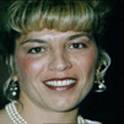
Claudia Benton |
death Claudia Benton Claudia Benton (b. c.1959), pediatric neurologist. |
|
18 Dec 1998

Lev Demin |
death Lev Demin Lev Demin (b. 1926), cosmonaut. |
|
20 Dec 1998

Sir Alan Hodgkin |
death Sir Alan Hodgkin Sir Alan Hodgkin (b. 1914), physiologist, Nobel laureate. |